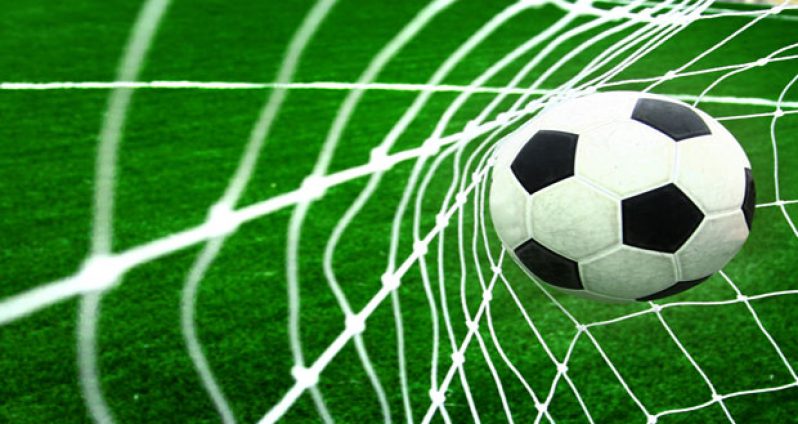A wrinkle-free face and a well-poised body shield the true identity of Claudette Henreto, an avid footballer who was named the Most Valuable Player (MVP) at the recently concluded Indigenous district games held during Indigenous Heritage month.
But there is the fact that Claudette is actually 47 years old and a mother of five children – not exactly the sort of description that would fit the “regular” footballer.
Claudette is an Arecuna woman. She spent all her life in the village of Paruima (pronounced “pa-ree-ma) in the Upper Mazaruni. The village is home to the only known group of Arecuna people in Guyana.
Her prowess on the football field is not too hard to fathom, when one considers that her daily exercise routine includes 10 four-hundred metres lap.
She carries the distinction of being the oldest on the community’s female team, and took the younger players to school, walking home with the enviable MVP award.
Claudette attended school in her village and was only exposed to primary education.
At the age of 17, she married fellow villager George Henreto, and together they bore five children.
Describing life in Paruima, soft-spoken Claudette used the word “nice” but challenging, as she juggles the role of mother and sportswoman – together with working the farms to help provide for the family.
“Whatever we farm, that is what we eat; things like cassava, calaloo, nuts and so. Sometimes I have to go with my babies to the farm because I have no one to keep them,” she said.
But while farming is done primarily on a small scale, mainly on a subsistence basis, she would sometimes sell some of it to nearby communities, including Kamarang.
Football
Her love for sports started at an early age, while in primary school.
She remembers with pride being rewarded with titles such as “Champion Girl” at inter-school sports, which was held annually.
She trained for events, including sack race, needle and thread, three-legged race, long and high jump, and sprints.
“I never run long distance races” she added.
From as early as age six, she remembers, she would play football with the males, using then a “hard grapefruit” as the ball.
This passion for sports, which was fueled by her ability to compete with males, led to her representing her community at the age of 15, when she made her first trip to Bartica for “circle tennis.” A trip to the mining town of Linden followed soon after.
Sharing her secret to a healthy life, Claudette was eager to note that “the more you care your life, the better and longer you live.”
“I always tell the young people in the community and my nieces that they are damaging their lives when they drink and smoke.
“I don’t smoke or drink and I never get tired when I am playing. I enjoy running and jumping. The other females would get tired faster than me and I would tell them that they are not living a healthy lifestyle.” She also encourages the male footballers to stay away from alcohol and smoking.
Her healthy lifestyle though is supported by the fact that she exercises every morning, which entails her running 10 laps on a 400 meters track in the community. Following this, she would head to the farm where she would begin the day’s work.
The inter-district football championships, held during Indigenous Heritage month, she said, is a highly-anticipated event for her, since it is not just about the games, but the ability to tour and meet people from different parts of Guyana.
This year, Claudette was awarded the Most Valuable Player after competing with teams from other Indigenous communities across the country.
Winning in their district, her team was then required to represent Region 7 at the inter-district games. However, a more aggressive Georgetown defeated them in penalties.
But although they were defeated, the footballer was keen to add that the happiness and unity that surrounds the team is one which cannot be bought.
“I love playing with the people here. I get to share experiences with them and teach them about life. We play as a team and always look out for each other.
“Even when we lose, we are still happy because we know we have to train harder to become better.”




.png)









